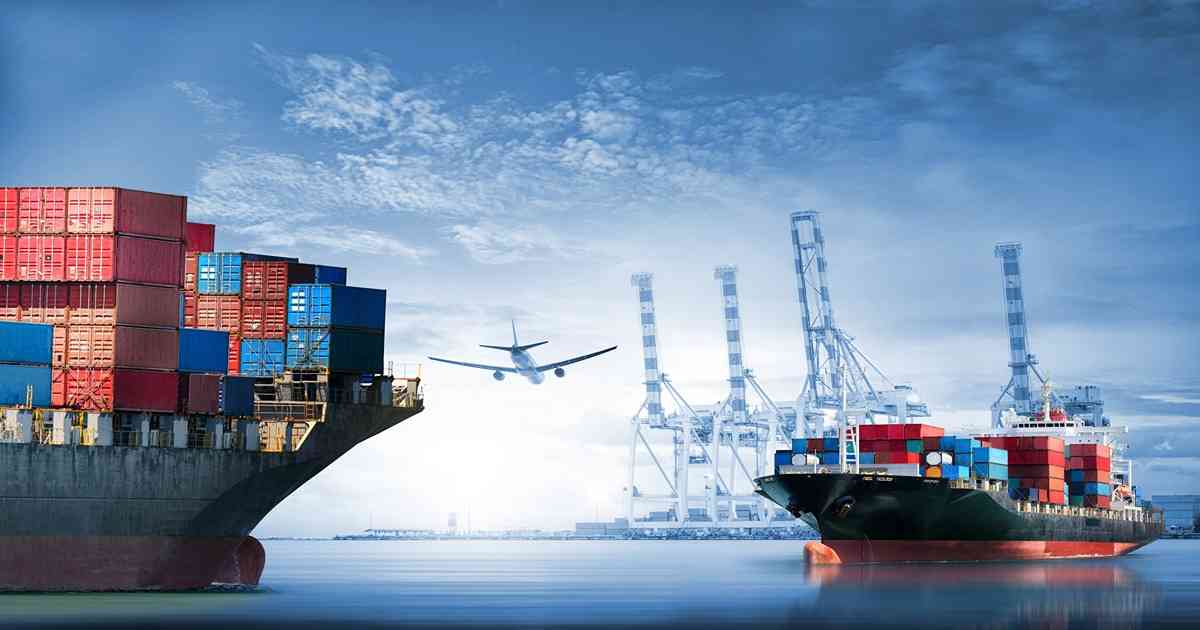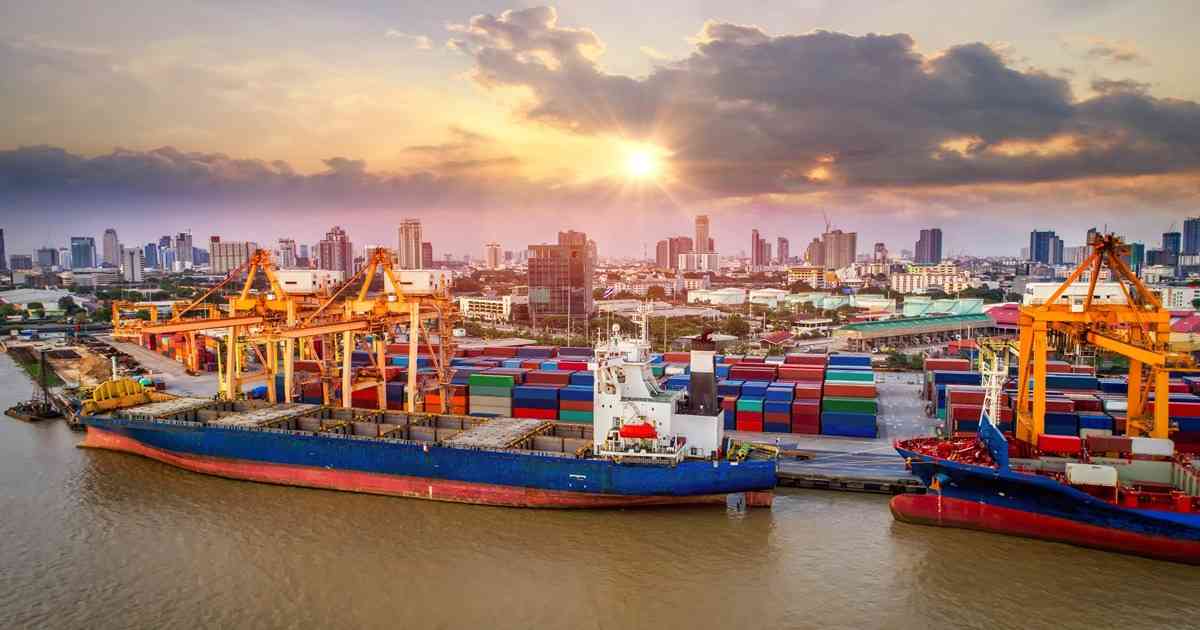
Warehousing and Distribution
Article | June 16, 2023
The pandemic has had a significant impact on the logistics and shipping sectors, forcing businesses to rethink their supply chain tactics. Fresh COVID- Supply systems around the world are already under threat from 19 outbreaks. China's measures to stop the spread of Omicron by shutting down shipping terminals caused a lockjam of cargo ships. A similar scenario was seen in US and European ports that were congested as a result of a significant increase in cargo.
Additionally, these difficulties have been made worse by the tremendous staff shortage in the US. Although there are more job openings than before, the total strength of the workforce has taken a hit. A report by WNS and Corinium Intelligence reveals that over 60% of shipping and logistics organizations have amped up the automation aspect of their operations by two years. So, what does that mean for the future? In this article, we will talk about the four most promising trends that will define the shipping and logistics industry in 2025.
Live Monitoring Powered by Big Data and the Digital Twin Technologies
Big data is simplifying the ability to be agile, efficient, and cost-effective, and connectivity with other technologies and elements of the infrastructure is driving a real-time view of the supply chain further. Other innovations such as drones and self-driving trucks will contribute to this real-time update and processing of massive amounts of data. In addition, tracking software for freight will provide even greater visibility to customers and enterprises.
Automated Planning Through Collaboration Between Humans and Machines
Artificial intelligence (AI)AI in shipping and logistics has grown exponentially in areas of planning. AI applications are used to alter transportation and route planning. According to Gartner, by 2030, AI augmentation, will surpass other forms of AI application and account for 44% of all AI-powered value. Predictive alerting is a prominent example of augmented intelligence. Smart alerts based on predictive analytics can be used by logistics professionals to carry out a variety of crucial tasks, such as estimating truck arrival times, anticipating equipment maintenance and product damage, and organizing for a spike in demand.
Hyper-local Supply Chains
Enterprise will downsize and bring their supply chains onshore over the course of the next few years, ushering in the next generation of hyper-local logistics. The two forces driving this transition are the need to stay agile and resilient to counter disruption and meet challenging customer demands for same-day delivery. The global same-day delivery market is estimated to reach a value of USD 20.36 billion by the year 2027. This will cultivate a hyper-local service to meet the growing demand.
Sustainability
An emphasis on sustainability will be the highlight of the shipping and logistics industry. Enhanced connectivity will enable enterprises to optimize their human as well as robotic resources.
Future Forward
The shipping and logistics industry has been forced to accelerate their digital adoption and increase their resilience due to the uncertainty in the past couple of years. Establishing real-time visibility, leveraging human-machine collaboration, adopting hyper-local logistics, and improving sustainability are all ways that businesses are preparing for the future.
Read More

Warehousing and Distribution
Article | June 27, 2023
Automated supply chain planning maximizes efficiency and helps achieve long-term success by addressing challenges, highlighting the benefits, and offering insights to optimize business performance.
Contents
1 Supply Chain Planning System Efficiency Maximization
2 Key Steps of Supply Chain Planning to Boost Efficiency
2.1 Implement Advanced Analytics Tools
2.2 Streamline Communication and Collaboration
2.3 Automate Processes
2.4 Consistency in Performance Improvement
3 Overcoming Major Challenges in the Process to Maximize Efficiency
3.1 Resistance to Change
3.2 Legacy Systems and Siloed Data
3.3 Inadequate Funding
4 Conclusion
1 Supply Chain Planning System Efficiency Maximization
To compete and succeed in an ongoing complex and dynamic global market, companies must maximize the efficiency of their supply chain planning systems, which help manage the flow of goods and services from suppliers to customers, optimize resources and information to meet customer demands and minimize costs and risks. An adequate supply chain planning system can increase customer satisfaction, profitability, agility, and risk management. Moreover, by reducing costs, increasing productivity, and enhancing responsiveness to market demands, maximizing efficiency can help businesses remain competitive. As a result, businesses can gain a substantial competitive edge and position the organization for long-term success by optimizing their supply chain planning systems.
2 Key Steps of Supply Chain Planning to Boost Efficiency
Businesses can significantly boost efficiency in their supply chain planning by implementing advanced analytics tools, streamlining communication and collaboration, automating processes, and ensuring consistency in performance improvement.
2.1 Implement Advanced Analytics Tools
Implementing advanced analytics in supply chain planning is key to improve supply chain efficiency. Advanced analytics tools, including demand forecasting, production planning and inventory management, can help organizations leverage large volumes of data to extract insights that enable better decision-making. The insights can be used to optimize production planning, reducing costs and increasing efficiency. In addition, it also enables businesses to detect and respond to supply chain disruptions on operations.
2.2 Streamline Communication and Collaboration
Managing and streamlining communication becomes essential for supply chain businesses, as it leads to greater agility and enables pipelines to adapt to changes in organizational structures. Leveraging cloud-based communication platforms, video conferencing, and collaboration tools enable real-time information sharing and collaboration across different teams and stakeholders. By enhancing communication and collaboration, businesses can better align their supply chain objectives, reduce communication gaps, and enhance decision-making.
2.3 Automate Processes
The integration of technologies such as order processing, inventory management, and shipment tracking under warehouse automation and logistics automation produces a vast amount of data, making it challenging for businesses to process data manually. To enhance efficiency, automating supply chain planning processes has become essential. Automating the process has eliminated multitasking, including managing goods flow, tracking road progress, and ensuring safe delivery, which was previously required in the manual process. By automating processes, supply chain management can be streamlined, leading to reduced lead times, minimized costs, and improved efficiency.
2.4 Consistency in Performance Improvement
Improving the supply chain is not a one-time fix, but a process that must be reviewed and optimized frequently. By implementing technology, businesses can continuously collect and analyze warehouse inventory management performance to identify areas for further efficiency gains and improved order accuracy. In addition, establishing a framework for continuous optimization involves regular performance reviews, feedback mechanisms, and benchmarking against industry best practices to help identify and address inefficiencies.
3 Overcoming Major Challenges in the Process to Maximize Efficiency
3.1 Resistance to Change
Supply chain planning systems are hindered by change resistance. Employees may resist change who are comfortable with the status quo and adopt new technologies and processes less often. Organizations need a comprehensive change management plan to address stakeholder engagement, communication, and training. Implementing a change management plan starts with identifying the key stakeholders and involving them in planning to gain their buy-in and support for the changes, implementing the process of the changes using different channels to reach all stakeholders and in addition, developing training programs to prepare employees for the changes and enable them to use new technologies and processes effectively.
3.2 Legacy Systems and Silos Data
Data silos and a lack of supply chain visibility are two problems that can arise when legacy systems and data are used. It also adds roadblocks in maximizing efficiency through supply chain planning software. Investing in older systems makes it challenging to gain a comprehensive view of the supply chain and informed decisions making. In addition, the systems are non-compatible with modern technology and data is stored in disconnected systems. With the help of an integrated system, all relevant information can be collected in one place, streamlining monitoring and decision-making. A data governance policy should be implemented to guarantee data quality and uniformity across all platforms. Data management, data storage, data sharing, regular monitoring and reporting on data quality are all essential components of this policy.
3.3 Inadequate Funding
Insufficient funding can affect supply chain planning system efficiency; with budget constraints, organizations may struggle to invest in new technologies, hire skilled workers, or improve processes. Thus, the supply chain planning system may become obsolete, increasing costs, lead times, and customer dissatisfaction. To overcome the challenge of inadequate funding in supply chain planning, organizations must prioritize funding and strategically allocate resources by identifying the areas that require the most investment. Exploring alternative funding sources, such as grants and partnerships, can supplement existing funding and enable organizations to invest in vital initiatives that may not have been possible with limited resources. In addition, cost-cutting measures, such as process optimization and automation, can help to stretch existing funds and boost productivity.
4 Conclusion
The supply chain planning system will continue to play a critical role in maximizing efficiency to revolutionize the supply chain professionals leverage emerging technologies such as AI, ML, and blockchain; understanding the process, identifying the challenges and overcoming them using the right strategies helps businesses in effective supply chain planning systems, gain a competitive advantage, improve supply chain performance and position themselves for long-term success. Furthermore, adopting a data-driven approach and a culture of continuous improvement in supply chain management planning can help organizations plan according to the future of supply chain and compete in the ever-changing global market.
Read More

Warehousing and Distribution
Article | July 11, 2023
Discover future trends & innovations at upcoming warehousing conferences and events. Explore technologies, growth opportunities and networking possibilities to improve the supply chain operations.
Warehousing and distribution play crucial roles in the logistics industry. To enhance the expertise and gain a competitive edge, professionals must attend logistics conferences in 2023, including the supply chain management and warehousing conferences and events. These gatherings offer a platform for industry leaders to exchange ideas, learn from experts, and explore the latest advancements.
The following warehousing conferences and events will provide tailored discussions on warehouse optimization, inventory management, and process improvement.
1. ASCM Connect 2023: Europe
June 27-28, 2023 | Brussels (Belgium)
ASCM CONNECT 2023: Europe, held at DoubleTree by Hilton Brussels City, is a must-attend event for supply chain professionals. This networking opportunity will offer educational sessions, trending topics, and valuable insights from industry leaders like Matteo Coppola (Integrated Business Planning Director Kellogg), Hans Ehm (Senior Principal Engineer Supply Chain and Head of Supply Chain Innovations Infineon), Juliana Hsuan (Professor, Operations Management and Supply Chain Management Copenhagen Business School), and more. Logistics and supply chain industry leaders will benefit from the event by gaining knowledge on supply chain management trends and innovations. One of this logistics events further equips professionals with the tools to streamline operations, improve efficiency, and reduce costs.
2. Innovation and Industrial Logistics (ICIIL 2023)
August 25-27, 2023 | Tapi (Macao)
The 9th International Conference on Innovation and Industrial Logistics (ICIIL 2023) is an exclusive supply chain conference for logistics and warehouse management industry leaders. The conference will include topics like purchasing, supply chain management, transportation, and warehouse optimization. This warehouse event will offer valuable insights into the latest trends and advancements. Professionals will be able to network with experts and peers, fostering collaboration and partnerships. Attending ICIIL 2023, held at the Macau University of Science and Technology, will enable attendees to enhance their expertise, optimize operations, and stay ahead in the dynamic supply chain and logistics industry.
3. ASCM Connect 2023: North America
September 11-13, 2023 | Louisville (Kentucky)
An indispensable supply chain event for logistics industry leaders will have 120+ speakers, 70+ education sessions, and eight innovation labs. This premier event will offer a comprehensive program with thought-provoking insights, hands-on workshops, and networking opportunities. Keynotes by influential figures such as John J. Sullivan (Former United States Ambassador to Russia (2020-2022)), Elliott Harris (United Nations Chief Economist), and Amanda Manna (Futurist and Vice President, Singularity University) will further enhance the experience. Attending ASCM CONNECT 2023 will enable professionals to stay ahead in the dynamic supply chain industry and encourage them to enlarge their network with people having different ideas from the industry to improve business operations.
4. Automotive Logistics and Supply Chain
September 26-28 2023 | Dearborn (Michigan)
A pivotal event for the supply chain and logistics industry, Automotive Logistics & Supply Chain Global will offer the opportunity to regain control and confidence in North America's automotive supply chain after years of crisis. It will explore the impact of policies on supply chain operations and emphasize the importance of building diverse and inclusive teams. Key speakers include Renee Wawrzynski (Executive Director of Global Logistics at General Motors), Chris Styles (Vice President of Logistics at Lucid Motors), and Oliver Bilstein(Vice-President Production Control, Logistics, and Material Control. BMW Manufacturing Co.), and others will share valuable insights. In addition, this warehouse conference event will be equipping professionals to navigate the challenges of a rapidly changing industry.
5. LogiPharma
October 04-06, 2023| Boston (Massachusetts)
This event for pharma, biotech, and medtech supply chain executives in North America, has been a beacon of innovation and best practices since its inception in 2002. From a network monitoring expert's perspective, attending LogiPharma offers industry leaders in the supply chain and logistics industry an unparalleled opportunity to stay ahead of the curve. By bringing together supply chain leaders from the manufacturing and distribution sectors, LogiPharma will promote collaboration and enhance supply chain management effectiveness. Attending this logistics and pharmacy conference will enable executives to be updated with industry trends and build vital relationships through interactive sessions and workshops by key speakers like Samir Gami (Sr. Director of Advanced Customer Capabilities Johnson & Johnson - Janssen), Ed Ram (Sr. Director, Supply Chain Sagent Pharmaceuticals), David Sokoloff (Director, Global Logistics & Materials Management Novavax), and more. Prepare to transform the business and build a resilient supply chain in the dynamic pharmaceutical industry.
6. Logistics Technology USA 2023
November 1-2, 2023 | Dallas (Texas)
To foster growth and disruption in the logistics industry, Logistics Technology USA is the premier event where logistics technology innovators gather. This warehouse management conference will offer logistics service providers the opportunity to experiment, break barriers, and create the future of logistics. With a focus on cutting-edge technologies like machine learning, drones, robotics, and artificial intelligence, attendees can gain valuable insights to enhance their businesses. Key speakers will share their expertise, including Pritha Mehra (Chief Information Officer and Executive Vice President of USPS), Ben Cubitt (Senior Vice President of Procurement and Engineering Uber Freight), Geoff Kelley, and others. Further, the conference will offer valuable sponsorship opportunities to get your brand in front of prospects and clients who can transform your business. The networking sessions also facilitate meaningful connections, helping kickstart sales cycles and accelerate business development efforts.
7. 7th Annual European Supply Chain Management Summit
November 07-08, 2023 | Las Vegas (US)
The European Supply Chain Management Strategies Summit is a leading supply chain conference that will offer senior leadership case studies and solutions. This event's primary focus will be to improve logistics and inventory management, implement IoT and new technologies, enhance supplier collaboration and transparency, and mitigate process risks. Additionally, the event is CPD accredited, ensuring the best opportunities for professional development. The event will also be enriched with inputs from the following key speakers, including Angelo Dalporto, a renowned expert in logistics and inventory management, Damodar Hegde, an authority on implementing IoT and new technologies, Leon van der Merwe, a specialist in supplier collaboration and transparency, Luke Kerr, a seasoned professional in risk mitigation strategies, and Sebastian Sołtys, an expert in workforce leadership and engagement. Their valuable perspectives and knowledge will help improve the supply chain warehousing and distribution strategies.
8. Future Supply Chain
November 28-29, 2023 | Torrey Pines (California)
Unlock the secrets to achieving total visibility in your supply chain at the upcoming digital supply chain event. With a staggering 69% companies lacking complete transparency, this event is a must-attend for supply chain and logistics industry leaders. The event will provide practical insights from end-user case studies and guide how to implement transformative technologies to propel the supply chain forward. The event will also boast an impressive lineup of key speakers, including Dave Campbell (Associate Director of Supply Chain Transformation, Proposals, & Comms), Sree Duggineni (Executive Director, Supply Chain Operations), Imara Charles (Vice President, Process and Digital Excellence), Marcus Handy (Director of Supply Chain and Operations), Ivy Huynh (Head of Logistics, Supply Chain), Reginald Mingot Blanc (Vice President of Operations & Integrated Supply Chain), Alexandra Garyn (Senior Director of Supply Chain Management), and Hari Perumal (Chief Supply Chain Officer).
9. The Global Destination for Logistics and Supply Chain Innovation
February 05-07, 2024 | Caesars Forum (Las Vegas)
Experience the future of logistics at Manifest, the premier gathering that will unite Fortune 500 global supply chain executives, logistics service providers, innovators, and investors in Las Vegas. This exclusive event will showcase the latest advancements in logistics tech and end-to-end supply chain practices that will help shape the industry's landscape. Supply chain and logistics experts will have unprecedented access to industry leaders and thought-provoking sessions that will provide valuable insights into emerging trends and strategic opportunities. Key speakers include Zane Adams (Co-Founder of EVP Strategy and Development FedUp Foods PBC), Moid Alwy (Chief Supply Chain Officer at EVP), Ian Arthurs (CEO & Founder at Circular.co), Andy Bair (Founding Partner at Sway Ventures), Amiee Bayer-Thomas (Chief Supply Chain Officer at Ulta Beauty), and Stephanie Benedetto (CEO & Founder of Queen of Raw).
10. IWLA Convention & Expo 2024
April 21-23, 2024 | Orlando (Florida)
The 2024 IWLA Convention & Expo is an event for warehousing leaders of North America's logistics and supply chain industry. This supply chain convention will offer a unique opportunity to connect, learn, and network with fellow logistics leaders. Whether you're a first-time attendee or a returning participant, the convention promises valuable experiences and connections that can enhance one's profession in the warehousing industry. Joining this event will provide insights into the latest trends and best practices and foster new relationships and a wealth of ideas to drive warehouse logistics operations forward. In addition, this premier gathering of warehouse industry professionals will also emphasize the solutions and experiences of the key speakers from the industry.
Key Takeaway
Attending logistics conferences such as the supply chain management conferences and warehousing conferences & events in 2023 is essential for professionals in the logistics industry. These events offer valuable opportunities to exchange knowledge, learn from experts, and explore the latest advancements in supply chain management and warehousing practices. Professionals will be able to optimize their supply chains, enhance warehouse operations, and gain a competitive edge in the dynamic business landscape by participating in these gatherings. Drive business success by leveraging the techniques and networking opportunities, these industry-leading events provide.
Read More

Article | April 19, 2020
Innovations such as AI and automation have been tipped to kickstart the Fourth Revolution. While the technology is being widely adopted, it is constantly evolving. Therefore, there is uncertainty surrounding its overall impact, particularly on professional roles within the supply chain. Some fear that the technology will replace its human counterparts, while other experts suggest it will work in unison with humans, supporting them to focus on higher value opportunities. Amidst all of this uncertainty one thing is for certain: AI and automation will change how we operate.
Read More